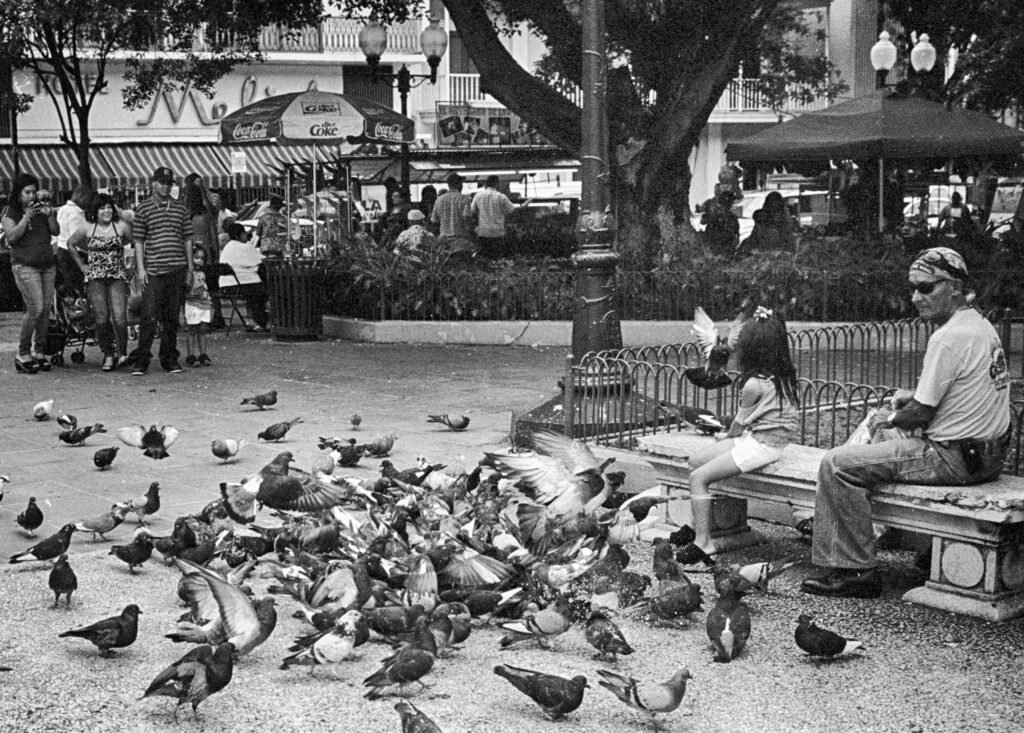
It’s late morning in San Juan, and the sun falls gently through the leaves of a flamboyán tree onto a concrete bench worn smooth by decades of stories. A middle-aged man sits there, his shirt loose from the heat, a faded red bandana tied around his head—part sweatband, part signature. Calloused hands, sun-browned arms, and the slow, unbothered stillness of someone who knows the rhythm of Caribbean time.
Beside him, perched close, his young daughter, maybe seven, one hand gripping a torn paper bag filled with bread crumbs. Together, they feed the pigeons. A hundred of them flutter at their feet—grey, black, speckled, heads bobbing, wings flashing, little hurricanes of motion on the old plaza tiles.
The man chuckles when she squeals—not in fear, but in delight—as a pigeon lands close, pecks a crust from her shoe. He tears a piece of pan sobao in half, hands it to her with a gentle “Toma, mi amor.” She smiles. Wide. Gap-toothed. Throws the bread with both hands.
Around them, life continues—tourists snap selfies under Spanish balconies, a street drummer taps out salsa beats on an upside-down bucket, abuelitas gossip under straw hats. But on this bench, it is just father and daughter, and the simple act of giving crumbs to creatures with wings.
He watches her, eyes soft behind tired lines, bandana soaked but pride shining clear. He’s not rich. He may have worked all week laying tile, hauling crates, fixing wires. But this—this moment—is wealth.
The pigeons coo. She laughs. And he leans back, one arm stretched along the bench, like he could hold the whole plaza in place just by loving her quietly.